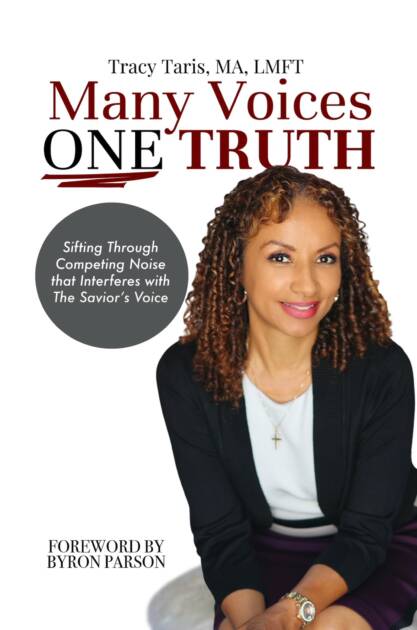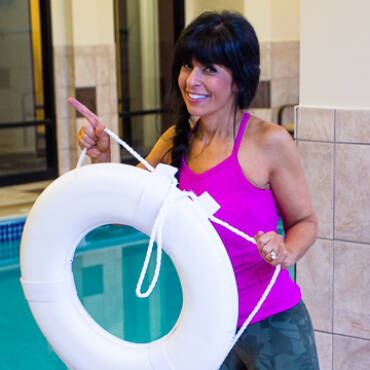Sleep troubles keeping you from reaching your dreams? There is little worse than tossing and turning, unable to fall or stay asleep. Prolonged periods of poor sleep can impact your health, career, and relationships. Understanding disordered sleeping patterns and ways to manage them can be life changing. Tracy Taris, MA, LMFT, a licensed marriage and family therapist, president and owner of Healing The Mind & Spirit, Inc., and author of Many Voices ONE TRUTH, shares her insight and expert tips on putting restless nights to bed!
*What are some common causes of sleep issues and how do they correlate with our overall mental health and well being?
For so many people, problems sleeping are really a symptom of depression and anxiety. Stress, worry, and constant overthinking tap our adrenal glands. If you are constantly on the go, and don’t allow for any down time during the day to process your thoughts and concerns, it is understandable why it is so hard to unwind and relax when you finally get to bed for the night. You may find yourself perseverating and unable to shut your mind down. Anxiety can keep you from getting any quality sleep, while depression can lead to sleeping too much.

*What are some practical strategies that women can use to combat stress and worry that are creating inadequate sleep patterns?
Turn to resources that are available to you. We are trained as women to do more and be more, and that somehow, the more productive we are, the more respected and accepted we will be. When something is bothering you, finding an outlet to help release it is vital. Perhaps that is to talk about what is bothering you with a trusted friend. I also advise my own clients to focus on reflection. Take the time, not only at night, but during breaks during the day, to reflect. Ask yourself what you are worried about. Journaling, or writing down your concerns, can help tremendously. The simple act of writing it down can help you process it, give yourself permission to release it, and move on with your day. Self-awareness is the biggest weapon in your arsenal to develop good sleep hygiene and move from activity to relaxation.
*You mention sleep hygiene. Can you elaborate a bit about what this is and how to achieve it?
Just as you have routines for your body and dental hygiene, you need to have good sleep hygiene to get the benefits of a good night’s rest. Creating a good pattern will help avoid waking up not feeling rested and refreshed. I advise my clients to focus on consistency. It takes 21 days to implement a change, it takes another 21 days for the behavior to become a habit, and another 21 days to form a habitual routine. Many of us grew up with good sleep hygiene as children from our parents creating bedtime routines and rituals. Bad sleep habits tend to develop in college where, suddenly, you’re pulling an all-nighter to study for exams, or off to a late-night party and, as we go off into adulthood, we become disconnected to the relationship between our bodies and the 24-hour cycle of the sun. The quality of your day begins the night before. Set yourself up to get optimal rest. One key to this is to go to bed when you start to get sleepy. When you are starting to feel fatigued, rather than trying to power through that feeling, use it as a signal from your body to rest. Pushing yourself to stay awake and trying to get a second wind will likely result in you being unable to fall asleep when you finally do put your head on the pillow.
*How can you navigate stress and anxiety to avoid them from impacting your ability to sleep?
Be mindful of your day. Despite the constant pressure to multitask, your brain can only truly focus on one thought or activity at a time. You can’t serve from an empty cup. You need to address what is bothering you. Typically, you already have the answers, but often you need to shut out all the noise and peel away the debris so you can examine the issue. Everyone has a “stress threshold” where they can handle what life throws at them up to a certain point. When pushed beyond that threshold, you experience adverse effects like being irritable, angry, and seeking out self-medication.

*Can you share any tips on how diet and exercise can improve sleep quality?
Avoiding caffeine later in the day should be a clear starting point, and be mindful that chocolate often has caffeine in it, so choosing a chocolatey snack late in the evening, may end up impacting your ability to fall asleep. I often tell my clients to pay attention to how your body responds to the foods you eat. This will be different for many people but, overall, the goal is to eat as clean as possible and avoid sugary, processed foods. Another helpful tip is to time your dinner to be at least a couple of hours before your bedtime, so that your body can focus on rest and rejuvenation, rather than digestion and metabolizing your meal. Alcohol is also not your friend when it comes to getting a good night’s sleep. Be sure your diet includes some healthy superfoods like avocado, nuts, and olive oil. In terms of exercise, try to get your workouts in during the earlier part of the day, preferably the morning but, to the extent you can, take it outside! Getting outside will boost your mood, give you some Vitamin D, and the fresh air can help increase your serotonin levels.
*Can you tell us a bit about your book, Many Voices ONE TRUTH?
Many Voices ONE TRUTH is a work that discusses choices in belief. In the book, I discuss the problem of negative thoughts, where they originate, and how to differentiate between the different thoughts that invade your mind. I try to teach the reader how to still and calm not only their minds but their central nervous system using time-honored methods and techniques.

*What are some of the interventions you use with clients who come to you with stress and related sleep problems, and are there any natural alternatives someone can turn to, rather than just taking a sleeping pill?
I discuss with my clients how biorhythm therapy works and how it is important to understand your relationship with the 24-hour cycle of the day. After dinner, start to get yourself in the mindset of the day coming to an end. Do some things that will help aid your body to relax. Perhaps do some light stretches, take a hot bath or shower, get a massage, or do some self-massage techniques. Ultimately, I tell my clients we are in control of our own thoughts. Be aware when you find yourself starting to worry. Women particularly benefit from a community when they are feeling overwhelmed. Ideally, find a trusted friend or adviser, preferably one a bit older than you are, who can share some well-learned life lessons. Look for your team and pay attention to the people around you and how they make you feel when you interact with them. In terms of meeting the demands of everyone around you, it is important to set boundaries for what you need for yourself to energize and recharge. Think of your energy like you would finances and create a budget. Then, you can better determine what you can spend and what you can spare. This will go a long way to quite literally having a good night!To learn more about Tracy Taris, you can visit HealingTheMindAndSpirit.com and follow her on Instagram at @HealingTheMindAndSpirit. For more information or to purchase her recent book, Many Voices ONE TRUTH, visit Amazon.com. Tracy leads a team of counselors at her group practice in the Santa Clarita Valley where psychotherapy services are provided in the form of couples, family, individual, adolescent and child therapy, as well as coaching services that cover a variety of topics from creative blocks, nutritional problems, and women’s issues.




